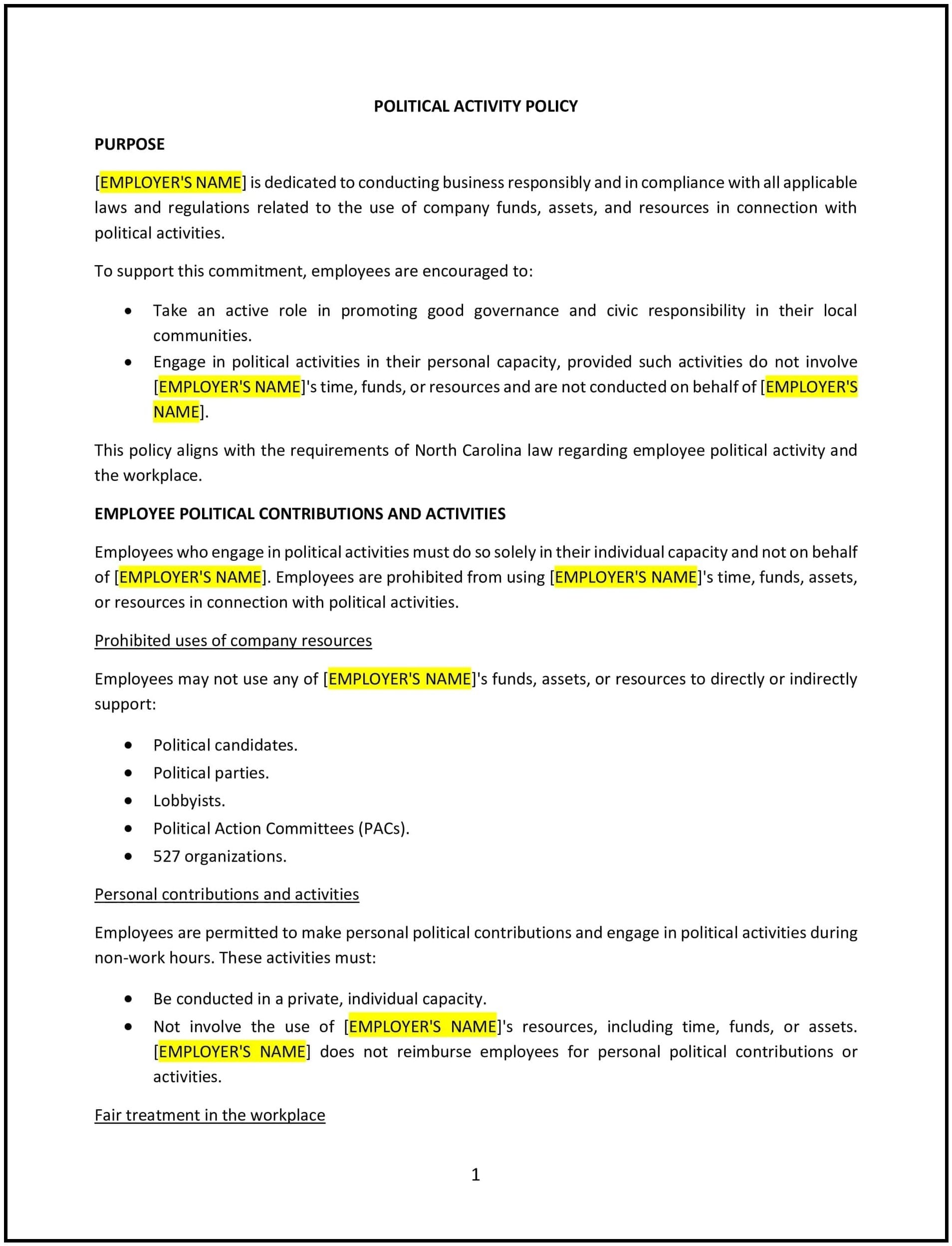Political activity policy (North Carolina): Free template
Got contracts to review? While you're here for policies, let Cobrief make contract review effortless—start your free review now.

Customize this template for free
Political activity policy (North Carolina)
A political activity policy helps North Carolina businesses establish guidelines for employees who wish to engage in political activities, ensuring that these activities do not interfere with their job performance or conflict with the company’s interests. This policy provides clarity on how employees can participate in political events, express political opinions, or support candidates while maintaining professionalism and upholding the business's reputation.
By adopting this policy, businesses can protect their public image, maintain a respectful workplace, and ensure that political involvement does not create conflicts of interest or disrupt business operations.
How to use this political activity policy (North Carolina)
- Define acceptable political activities: Specify the types of political activities employees are allowed to participate in, such as voting, campaigning, or donating to political candidates or causes.
- Set guidelines for workplace conduct: Outline the expected behavior in the workplace regarding political discussions or activities, emphasizing that political activities should not interfere with job performance or create a disruptive environment.
- Address conflicts of interest: Clearly state that employees should avoid engaging in political activities that could create a conflict of interest with the company’s interests or objectives.
- Ensure transparency: Require employees to disclose any political involvement that could potentially affect their job duties or pose a conflict of interest.
- Reflect North Carolina-specific considerations: Ensure the policy complies with North Carolina’s labor laws, including protections against discrimination based on political affiliation or activity.
Benefits of using this political activity policy (North Carolina)
This policy provides several benefits for North Carolina businesses:
- Promotes neutrality: Helps the company maintain a neutral stance in political matters, preventing any appearance of bias in the workplace or toward customers and clients.
- Reduces workplace disruption: By setting clear expectations for political activity, the policy helps prevent divisiveness or conflicts among employees based on political beliefs.
- Enhances employee satisfaction: Employees are given the freedom to engage in political activities outside of work, which can contribute to a positive and inclusive company culture.
- Protects the company's reputation: Clear guidelines help avoid any potential backlash or damage to the company’s reputation due to political involvement.
- Minimizes legal risk: Ensures that political activities do not violate any North Carolina or federal employment laws related to political expression in the workplace.
Tips for using this political activity policy (North Carolina)
- Communicate the policy clearly: Make sure all employees are aware of the company’s expectations regarding political activity both within and outside the workplace.
- Monitor workplace interactions: Ensure that political discussions do not become disruptive or divisive in the workplace.
- Review the policy regularly: The policy should be reviewed annually to ensure it aligns with North Carolina’s labor laws and best practices.